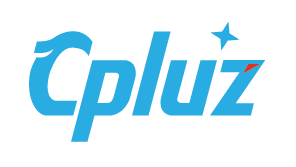Introduction:
In today’s digital world, websites and applications are becoming increasingly complex, with rich media content, dynamic functionality, and global user bases. As a result, delivering fast and reliable content to users has become more challenging than ever before. Enter Content Delivery Networks (CDNs), which have emerged as an essential tool for website owners and hosting providers alike. CDNs offer numerous benefits that can help improve site performance, enhance user experience, and boost search engine rankings. In this article, we will discuss the benefits of using a CDN with your hosting provider, and why it is an indispensable component of modern web infrastructure.
1. Faster Content Delivery:
The primary purpose of a CDN is to deliver content faster by caching and serving it from geographically distributed servers located closer to the end-users. By reducing the physical distance between the user and the server, CDNs can significantly decrease latency and improve load times for static and dynamic content. Faster content delivery leads to better user experience, increased engagement, and lower bounce rates, ultimately resulting in higher search engine rankings and conversions.
2. Enhanced Reliability and Redundancy:
CDNs offer enhanced reliability and redundancy by distributing your website or application’s content across multiple servers worldwide. In the event of a server outage or high traffic, CDNs can automatically reroute requests to other available servers, ensuring that your users continue to access your content without interruption. This improves your site’s uptime, reduces downtime, and ensures better availability for your global user base.
3. Improved Security:
CDNs offer various security features that can help protect your website or application from cyber threats. By filtering and blocking malicious traffic at the edge, CDNs can prevent DDoS attacks and other forms of cyber-attacks before they reach your servers. Additionally, SSL certificates and web application firewalls can be employed to secure sensitive data and applications, ensuring that your users’ information remains safe.
4. Scalability:
CDNs offer scalability by automatically adjusting to the traffic demands of your website or application, ensuring that content is delivered efficiently and effectively even during periods of high demand. CDNs can also provide burst capacity during sudden spikes in traffic, preventing slowdowns or downtime that could negatively impact user experience and search engine rankings.
5. Reduced Bandwidth Costs:
By offloading the delivery of static content to CDN servers, hosting providers can significantly reduce their bandwidth costs, as well as their servers’ processing power requirements. This allows for more efficient use of resources, lower operational costs, and better overall performance for your website or application.
6. Improved SEO:
Faster content delivery and improved site performance are essential factors that search engines consider when ranking websites in their search results. By using a CDN to deliver your content quickly and reliably, you can enhance your site’s overall performance, resulting in better search engine rankings and increased organic traffic.
7. Global Reach:
CDNs offer a global reach by delivering content from servers located in various regions around the world. This ensures that your users, regardless of their geographic location, receive fast and reliable content delivery. For businesses with a global user base, using a CDN can help improve their digital presence, expand their reach, and increase conversions.
Conclusion:
In conclusion, using a CDN with your hosting provider offers numerous benefits that can significantly improve your website or application’s performance, enhance user experience, and boost search engine rankings. From faster content delivery and improved reliability to enhanced security, scalability, reduced bandwidth costs, and global reach, the advantages of using a CDN are clear. By integrating a CDN into your web infrastructure, you can ensure that your users receive fast, reliable, and secure content, while also optimizing your site for search engines and enhancing its overall performance.

